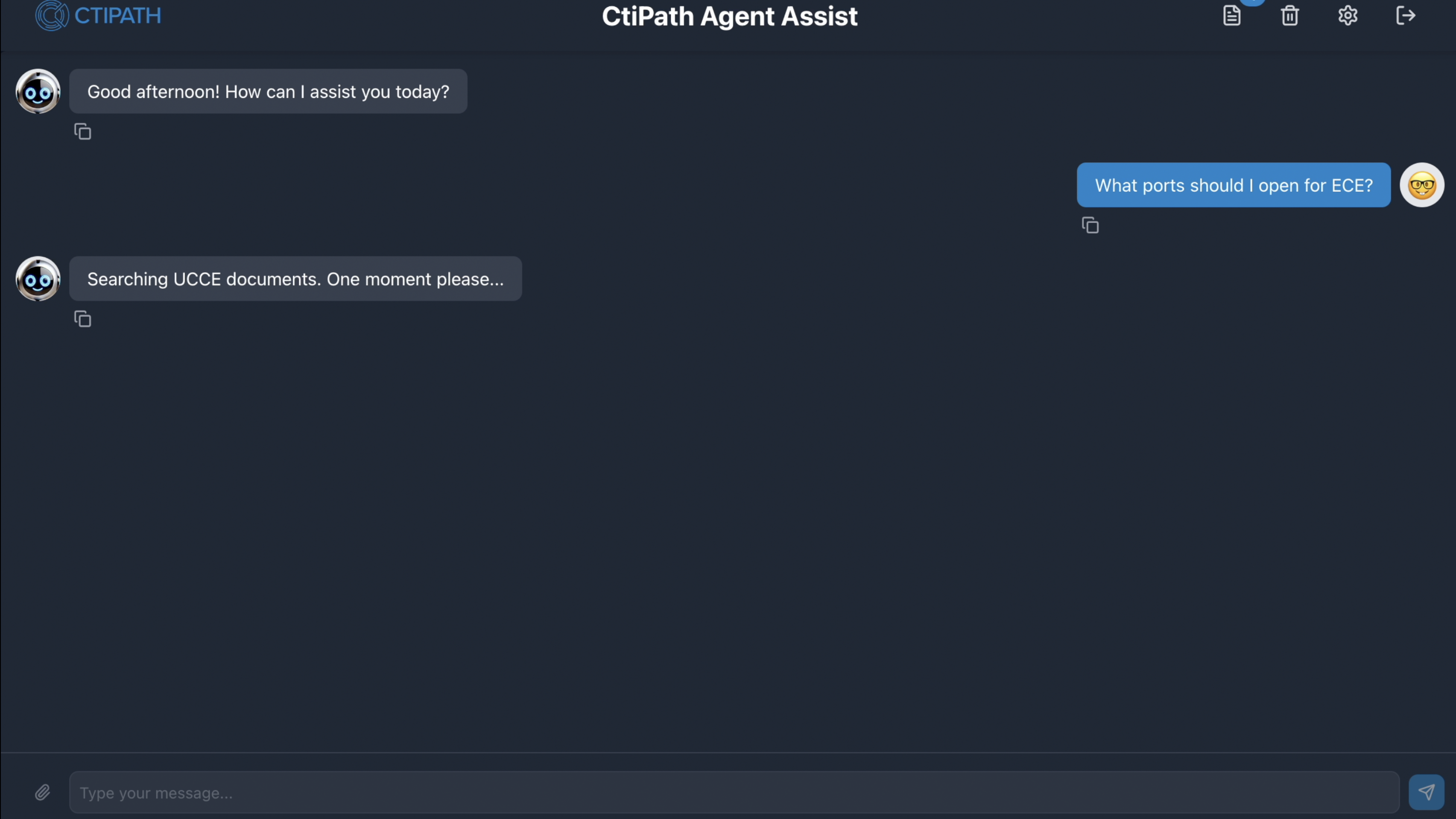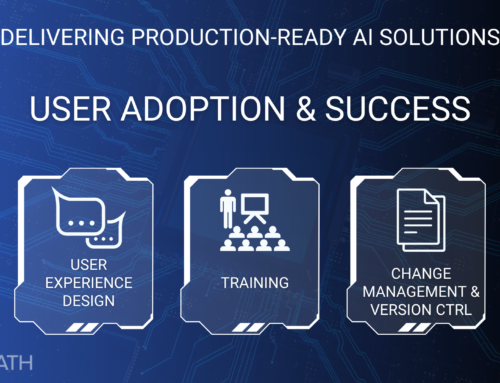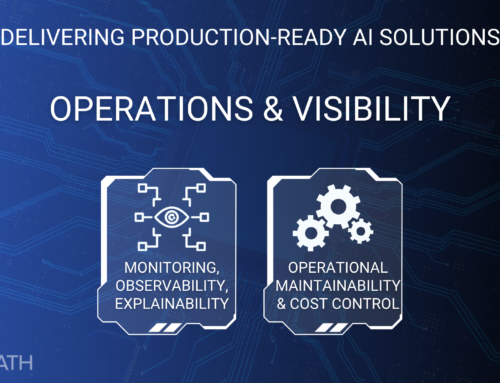The Time Drain Everyone Recognizes
Picture this: A customer calls with a complex technical issue. Your support engineer knows the answer exists somewhere in your documentation. It's probably in one of the 847 technical guides, policy documents, or troubleshooting manuals your company has accumulated over the years.
What happens next is painful to watch. Twenty minutes of scrolling through PDFs. Multiple browser tabs open to different document repositories. Keyword searches that return either nothing useful or 200 results to sift through. Meanwhile, the customer waits, and your engineer's expertise goes unused.
We've all been there. The information exists, but finding it feels like archaeology, digging through layers of documents, hoping to uncover the right piece of knowledge before the day runs out.
Two Real-World Examples
Recently, we built document search systems for two very different scenarios that illustrate how widespread this problem is.
The first was for a team navigating government regulatory requirements. They were spending hours each week searching through thousands of pages of compliance documents, trying to find specific regulations that applied to their situation. The documents were dense, cross-referenced, and constantly updated. Finding the right guidance often took longer than implementing the actual compliance measures.
The second was for technical support engineers working with complex telecommunications systems. When customers called with issues, the engineers needed to quickly locate specific troubleshooting steps from extensive technical documentation. The information was there, buried in comprehensive manuals. But extracting it under pressure was slow and frustrating.
In both cases, skilled professionals were spending significant time on information retrieval instead of problem-solving.
A Different Way to Access Knowledge
Instead of accepting this as the cost of doing business, we built systems that understand documents the way humans do—not just matching keywords, but grasping context and relationships between concepts.
When the compliance team now needs guidance on a specific regulation, they ask a direct question in plain English. The system doesn't just find documents that contain certain words. It identifies the sections that actually address their specific situation, even when the exact terminology doesn't match.
The technical support engineers can now describe a customer's problem naturally, and the system surfaces the relevant troubleshooting steps, related issues, and background context they need to provide complete solutions quickly.
The key difference is contextual understanding. These systems know that when someone asks about "network connectivity issues during peak hours," they need different information than someone asking about "network connectivity issues during system updates" even though both queries contain similar words.
The Transformation in Daily Work
The impact goes beyond faster searches. When finding information becomes effortless, the entire nature of work changes.
Support engineers spend more time actually solving problems and less time hunting for solutions. They can handle more complex issues because they have instant access to the full depth of company knowledge. Customer satisfaction improves because resolution times decrease and solutions are more comprehensive.
Compliance teams can focus on interpretation and implementation rather than document detective work. They catch regulatory changes faster and respond more confidently because they're working with complete, relevant information rather than fragments they've managed to locate.
The common thread is that expertise gets applied where it matters most, understanding problems and developing solutions, rather than being consumed by information retrieval.
Imagine This in Your Business
Now imagine similar capabilities applied to your company's knowledge challenges:
Customer service teams who can instantly access every policy, procedure, and precedent relevant to a customer's specific situation, providing consistent, informed responses without escalation delays.
Sales teams who can immediately find case studies, technical specifications, and competitive positioning for any prospect scenario, transforming every conversation into a consultative discussion.
HR departments who can quickly surface relevant policies, benefits information, and compliance requirements for any employee question, providing accurate guidance without lengthy research.
Legal teams who can rapidly locate relevant contracts, precedents, and regulatory guidance for any business question, enabling faster decision-making with confidence.
Project managers who can instantly access lessons learned, best practices, and resource requirements from similar past projects, improving planning accuracy and avoiding repeated mistakes.
The pattern is consistent: when information access becomes instantaneous and contextual, expertise shifts from finding knowledge to applying it.
The Competitive Advantage
Companies that solve their document search problems first gain advantages that compound over time:
Faster response times to customers, partners, and internal stakeholders because information doesn't create bottlenecks.
More consistent quality in customer interactions because everyone has access to the same complete knowledge base.
Better decision-making because comprehensive information is available when decisions are being made, not after.
Higher employee satisfaction because people spend time using their skills rather than fighting with search systems.
Reduced training time for new employees because institutional knowledge is accessible rather than buried.
These aren't small improvements. They're fundamental changes in how work gets done.
Beyond Keyword Matching
The systems we're describing don't work like traditional search engines. They understand meaning, context, and relationships. They learn from how people actually use information. They get better over time as they process more questions and document interactions.
Most importantly, they present information the way humans think about problems, not as lists of documents, but as relevant answers with supporting context.
This isn't theoretical. The technology exists now, and companies are already using it to transform how they access and apply their collective knowledge.
The Question Isn't Whether, But When
Every business has accumulated vast amounts of valuable information over time. The question is whether that information helps your team perform better or just creates search frustration.
If your people are spending significant time hunting through documents, databases, and systems to find information they know exists, that's a strong indicator that contextual document search could transform how they work.
The companies implementing these solutions now are gaining advantages their competitors won't be able to match by working harder with traditional search methods.
Your Document Challenge
What would change in your business if finding any piece of information took seconds instead of minutes or hours?
Where do your teams currently spend time searching for information that could be spent applying their expertise? What customer questions go unanswered or get delayed because the relevant knowledge is hard to locate?
Those are the processes that contextual document search can transform, not by replacing human judgment, but by ensuring that judgment is applied to solving problems rather than finding information.
We specialize in building document search systems that understand context and deliver relevant answers instantly. Every implementation is customized to how your business actually works and what information matters most to your team's success.
Ready to explore how this could work with your specific documents and workflows? Let's discuss the information challenges that are slowing down your team's ability to deliver value.
Want to dig into some of the more technical aspects of this solutions? Try this articles:
– "I Still Haven't Found What I'm Looking For": Solving the Technical Document Search Problem
– Enhancing Business Intelligence Through Advanced Document Search: Our Innovative Approach





